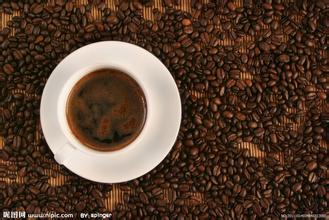Introduction to Galapagos Coffee producing area
Because of the unique role of the Galapagos Islands in the course of history, the Government of Ecuador has designated the Galapagos Islands as a national park, the land is no longer allowed to be reclaimed as new agricultural land, and the introduction and use of chemical fertilizers, pesticides, herbicides and other chemicals are strictly prohibited, so coffee produced in the Galapagos Islands is recognized as a natural product.
Ecuador ES Coffee-Ecuador
The famous South American brand, Ecuadorian Grade A coffee, has a large state-run seed value garden; 100% is produced in the natural vegetation zone of 1300-2000 meters highland, popular in Europe and the United States, and tastes exquisite world-class Arabica Arabica flavor at supermarket prices.
ES Coffee is a clean organic coffee grown on the slopes of the Andes in Latin America. It is 100% pure coffee, and the quality of our coffee has been guaranteed and improved by working to improve the economic and working conditions of the plantation, while maintaining the small scale of the coffee plantation and the biodiversity in the hospital. In addition, it is one of the very important economic sources of coffee origin, because it is all dried and packaged locally, which ensures that it is a very unique kind of coffee in the world! At the same time, it also ensures its unique taste. St. Cristobal is a larger island in the Galapagos archipelago. At an altitude of 410m, there is a small lake called El.Junco, which forms streams along the rocks and volcanic rocks on the southern slope of the island. Mineral-rich fresh water moistens St. Cristobal's land, keeping the soil moist and fertile. It provides the most rare conditions for the growth of coffee here.
In 1875, 340 years after Frey Thomas de Belanga discovered the island, an indigenous man named Corvus came to St. Cristobal, where he established the Hasunda Coffee Garden and planted about 100 hectares of Arabian bourbon coffee trees. Because the plantation is located between 140m and 275m above sea level and the climate is equivalent to that of inland 915m ~ 1830 m, the unique geographical conditions are very suitable for the growth of high acidity extra hard coffee beans (SHB), so this kind of high-quality coffee has settled down here.

Important Notice :
前街咖啡 FrontStreet Coffee has moved to new addredd:
FrontStreet Coffee Address: 315,Donghua East Road,GuangZhou
Tel:020 38364473
- Prev

Introduction to the Flavor of Iron pickup Coffee Fine Coffee in the producing area of Iron pickup Coffee Manor
Ironpika is commonly found in Jamaica in Central America and Indonesia in Asia. Its fruit is usually large and oval, while its leaves are slender. Like to grow in fertile mountain soil, cold resistance and disease resistance are weak, the yield is low. The famous Jamaican Blue Mountain Coffee belongs to this breed and traces its roots. Typica comes from Ethiopia, the ancient place of origin of coffee.
- Next

Indonesian Fine Coffee Indonesian Coffee Flavor Manor introduces Manning Fine Coffee beans
In particular, there is a special kind of animal in the Indonesian mountains: the civet, because it makes Indonesia produce almost the most expensive coffee in the world-civet coffee, also known as Kopi Luwak. This kind of cat likes to eat coffee berries, and hard coffee beans are eventually excreted because they are indigestible. During the period of passing through the digestive tract, coffee beans are fermented to produce a unique and complex
Related
- Detailed explanation of Jadeite planting Land in Panamanian Jadeite Manor introduction to the grading system of Jadeite competitive bidding, Red bid, Green bid and Rose Summer
- Story of Coffee planting in Brenka region of Costa Rica Stonehenge Manor anaerobic heavy honey treatment of flavor mouth
- What's on the barrel of Blue Mountain Coffee beans?
- Can American coffee also pull flowers? How to use hot American style to pull out a good-looking pattern?
- Can you make a cold extract with coffee beans? What is the right proportion for cold-extracted coffee formula?
- Indonesian PWN Gold Mandrine Coffee Origin Features Flavor How to Chong? Mandolin coffee is American.
- A brief introduction to the flavor characteristics of Brazilian yellow bourbon coffee beans
- What is the effect of different water quality on the flavor of cold-extracted coffee? What kind of water is best for brewing coffee?
- Why do you think of Rose Summer whenever you mention Panamanian coffee?
- Introduction to the characteristics of authentic blue mountain coffee bean producing areas? What is the CIB Coffee Authority in Jamaica?

